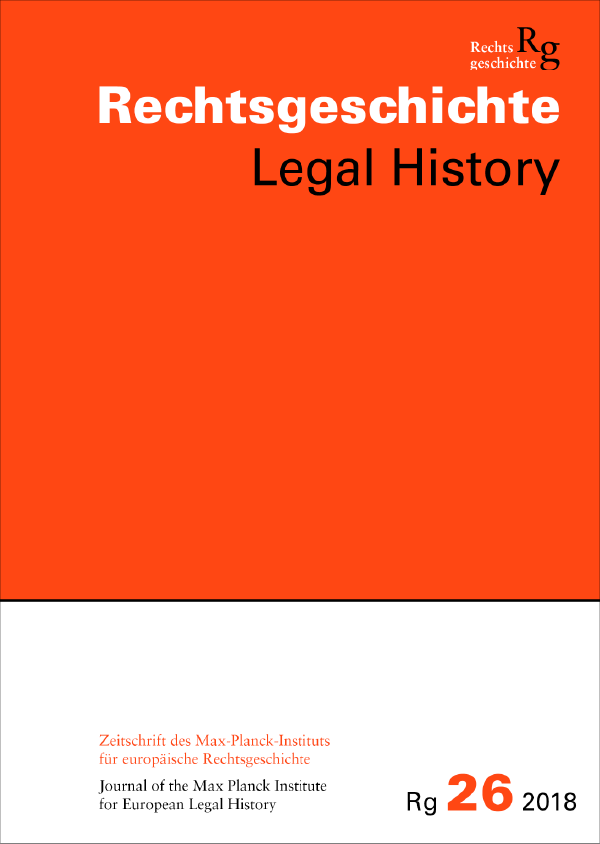Dominium in the Indies. Juan López de Palacios Rubios’ Libellus de insulis oceanis quas vulgus indias appelat (1512–1516)
DOI:
https://doi.org/10.12946/rg26/264-283Schlagworte:
School of Salamanca, conquest, dominium, Bartolomé de Las Casas, Juan de Palacios RubiosAbstract
The conquista of the Americas confronted Spanish jurists educated in the legal concepts of the European medieval tradition with a different reality, pushing them to develop modern legal concepts on the basis of the European ius commune tradition. Traditionally, the School of Salamanca, theologians and jurists centred around the Dominican Francisco de Vitoria are credited with this intellectual renovation of moral and legal thought. However, the role earlier authors played in the process is still insufficiently researched. The Castilian crown jurist Juan López de Palacios Rubios is one of the most interesting authors of the early phase in the conquest of the Americas. His treatise about the Spanish dominion in the Americas is a central text that shows how at the beginning of the 16th century the knowledge and the experiences of the European past were applied to the American present and, in the process, were shaped into modern ideas.
Downloads
Veröffentlicht
Zitationsvorschlag
Ausgabe
Rubrik
Lizenz
Copyright (c) 2018 Autor/in

Dieses Werk steht unter einer Creative Commons Namensnennung - Nicht-kommerziell - Keine Bearbeitung 3.0 International -Lizenz.





